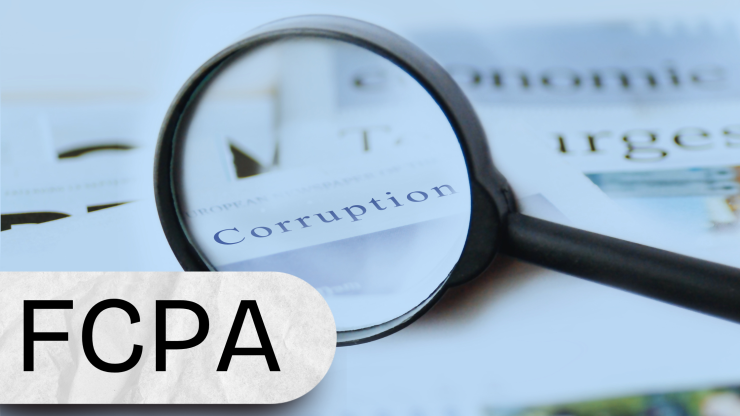President Trump has issued an executive order pausing enforcement of the Foreign Corrupt Practices Act (FCPA) for 180 days, with a possible extension. This decision aims to reassess how the law affects U.S. businesses operating overseas. The FCPA has been a cornerstone of anti-corruption enforcement, preventing U.S. companies from engaging in bribery when dealing with foreign officials.
However, this pause does not repeal the FCPA. The law is still in effect, and the Securities and Exchange Commission (SEC) retains its civil enforcement authority. Additionally, many other countries have their own strict anti-bribery laws, meaning that businesses still need to maintain compliance with global regulations. Companies operating internationally cannot afford to ignore these requirements, as violations could lead to severe financial and reputational consequences.
Why FCPA Training Still Matters
Even with the temporary enforcement pause, FCPA compliance remains crucial. Companies must continue to educate employees about anti-corruption policies to mitigate risks and avoid potential legal pitfalls. Ignoring FCPA training can lead to poor compliance habits, which may result in violations when enforcement resumes or under international regulations.
While some may see the pause as an opportunity to scale back compliance efforts, the reality is that ethical business practices and legal obligations remain unchanged. Companies that fail to uphold anti-bribery standards may face challenges when enforcement resumes, including increased scrutiny and potential penalties. Staying informed and proactive is key to long-term success in global markets.
What Our FCPA Training Covers
At emPower eLearning, we provide comprehensive FCPA training to help businesses stay compliant with both U.S. and international regulations. This course would help you understand the fundamentals of the U.S. Foreign Corrupt Practices Act (FCPA) and how it impacts your interactions with foreign officials.
You’ll begin with an introduction to the law, including covered persons and entities, and the cost of FCPA violations. We’ll look at key definitions such as corrupt intent, foreign officials, and willful blindness. Understanding these concepts is critical in avoiding unintentional violations.
In the next section, you’ll learn the best practices for avoiding FCPA violations. Along with this, we’ll cover facilitation payments and the best practices for making such payments while staying compliant with the law.
In addition, you’ll learn about corporate and third-party liabilities, penalties, and record-keeping requirements. Given the complexity of FCPA regulations, maintaining proper documentation and following corporate compliance protocols is essential for risk mitigation.
The Business Case for Continued FCPA Training
For businesses operating globally, compliance is not just about avoiding penalties—it’s about maintaining trust, protecting reputations, and ensuring long-term success. While enforcement may be on hold for now, regulatory scrutiny can return at any time. Furthermore, foreign governments and industry regulators continue to impose anti-bribery rules that align with the FCPA.
Investing in FCPA training now ensures that employees remain educated and prepared, preventing costly compliance failures. Companies that proactively maintain compliance programs will have a significant advantage when enforcement resumes, as they can demonstrate a strong commitment to ethical business practices.
Additionally, organizations with strong compliance programs benefit from reduced risks, better corporate governance, and improved stakeholder confidence. Employees who understand FCPA regulations are less likely to engage in risky behavior, ensuring that business operations remain ethical and legally sound.
Stay Compliant with emPower’s FCPA Training
emPower eLearning offers a comprehensive FCPA training course designed to help businesses navigate the complexities of anti-bribery laws. Our training ensures that employees and leadership understand how to operate within legal boundaries while conducting business abroad.
By enrolling in our training program, companies can build a strong compliance culture and avoid costly legal consequences. Keeping employees informed about changing regulations and best practices is essential in today’s evolving business landscape.
Learn more about our course here: https://www.empowerelearning.com/ethics-fraud-waste-and-abuse-training/
What are your thoughts on this executive order? Will it change how companies approach compliance training? Let’s discuss.




